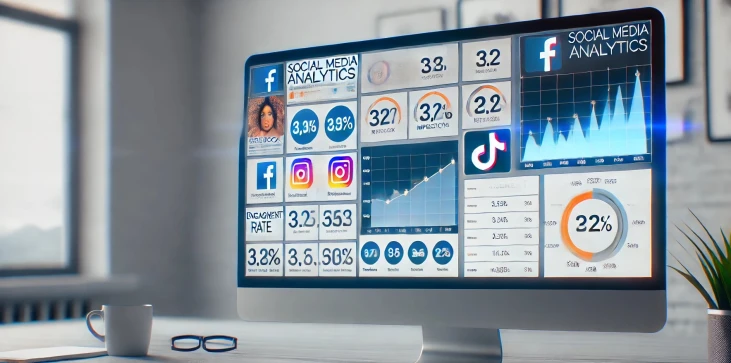
In the fast-paced world of social media, having a strong online presence is essential for any business. But how can you know if your efforts are truly paying off? The answer lies in social media analytics—a powerful way to track performance, understand audience engagement, and optimize content strategy. Social media platforms generate vast amounts of data, from likes and shares to comments and clicks, and analytics tools help you make sense of it all. With the right approach to social media analytics, you can make data-driven decisions that boost your brand visibility and drive meaningful engagement. Whether you’re managing social media for a small business or a large corporation, mastering social media analytics will give you the insights you need to enhance your marketing strategy. In this guide, we’ll explore what social media analytics is, why it matters, and how to use it effectively to measure success.
In today's digital landscape, social media analytics is an invaluable resource for any marketer looking to refine their strategy and improve their results. By understanding the importance of tracking metrics like engagement rate, reach, and conversion rate, you can optimize your social media campaigns for maximum impact. With the right tools and a data-driven mindset, social media analytics can provide the insights you need to stay ahead of the competition and ensure long-term success in your marketing efforts.

Some of the top tools for social media analytics include platform-specific tools like Facebook Insights and Instagram Analytics, and third-party solutions like Hootsuite, Sprout Social, and Google Analytics. These tools help track engagement, reach, and conversion rates to optimize performance.
Social media analytics provides demographic insights such as age, gender, location, and interests of your audience. This data helps you refine your targeting strategies, ensuring your content reaches the right people and increases engagement.
Reach refers to the number of unique users who view your content, while impressions track the total number of times your content is displayed, regardless of whether users interact with it. Both metrics are essential for understanding content visibility and performance.